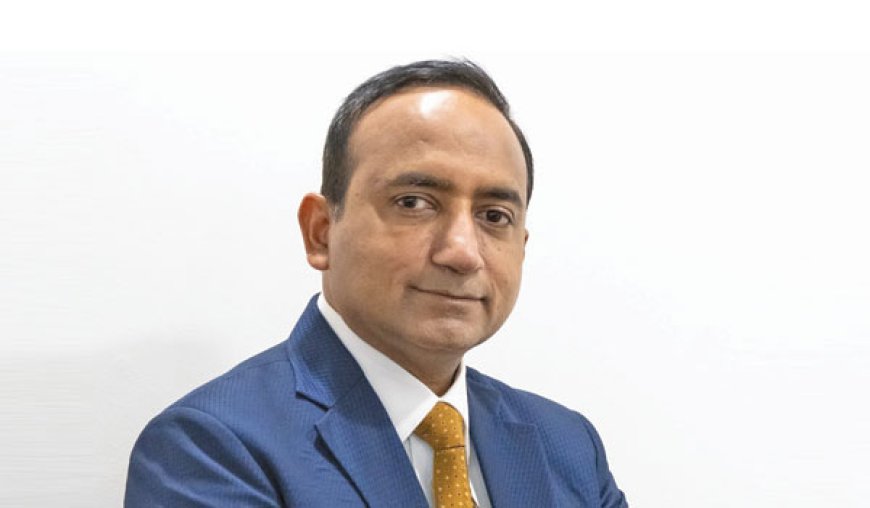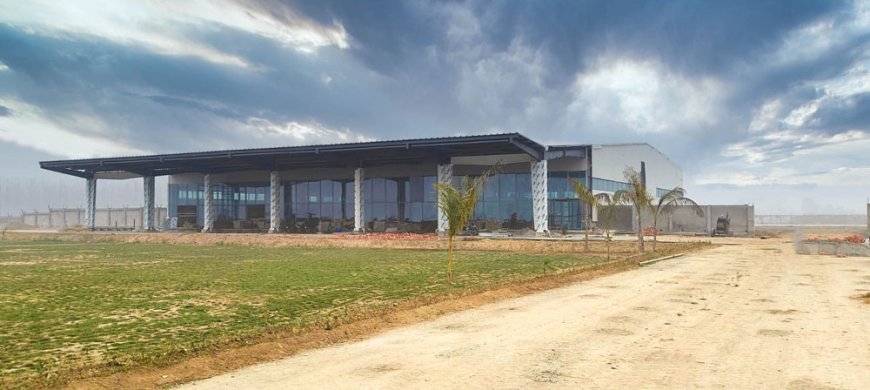Our work contributes to the government’s UDAN scheme considerably.

Sanjay Singhania
How do you view the current growth scenario of the PEB sector in India?
The infrastructure industry is looking at a massive transformation, owing to the technological advancements within the sector. The growth of PEBs is a by-product of being more adaptable to new technology and understanding that it is far more sustainable and cost-efficient than the traditional ways of construction. This growth is further fuelled by the government's push for infrastructure development and rapid industrialization.
Furthermore, there have been substantial investments in infrastructure projects, including smart cities and airports, which are driving the demand for PEBs. Key industrial sectors such as warehousing, cement, steel, and automobiles are already showing great demand for PEBs as they expand their capacities. We also anticipate that sectors like travel, data centers, and real estate will soon witness increased use of PEBs. There is significant potential and numerous opportunities for PEBs in India, making it a promising market for the near future.
Which are the major segments driving the growth of PEB structures and solutions?
The major segments driving the growth of PEB structures and solutions include industries seeking rapid expansion to enhance their production capacities. Key sectors such as warehousing, cement, steel, and automobiles are at the forefront of this demand. Additionally, there is extensive demand coming from the airport sector, with significant developments in both Greenfield and Brownfield airport expansions.
These segments are leveraging the benefits of PEBs for their efficiency and cost-effectiveness. In fact, our work contributes to the government’s UDAN scheme considerably.

Can you elaborate on the company’s latest advancements in PEB design and technologies?
Equipped with cutting-edge machinery and utilizing over 12 software tools with advanced computing machines, we enhance our design capacity significantly. Our production process follows a meticulous 12-step approach, ensuring precision and efficiency in every detail.
Our team comprises more than 100 dedicated PEB design experts with advanced computing machines and an advanced in-house R&D team, collectively capable of delivering 900+ man-hours of innovation and excellence. With the ability to handle 100+ projects simultaneously, our design experts bring over 20 years of experience on average, supported by outsourced design expertise when needed.
Which are the key ongoing projects of the company?
We are currently working on many large-scale projects for clients like: JK Tyre, RR Kabel, Safari, Jupiter Aluminium, Haier, AAI, etc.
What are your growth plans for the Indian market in the PEB sector?
We are planning to expand our business territory in eastern and western regions of India. By 2024, EPACK Prefab's expansion efforts include setting up manufacturing plants in the western regions of India. The new plant will increase production capacity, reduce transportation costs, and ensure faster project delivery. However, last year we set up our largest manufacturing plant in Mumbattu, Tirupati District of Andhra Pradesh, which has added 87,000 metric tonnes to our production capacity. We also plan to further expand through brownfield projects at our existing plants in Rajasthan and Uttar Pradesh.
In FY 24-25, we are planning to focus more on sectors like data centers, Tourism & Hospitality. In FY 24-25, we are planning to achieve 16,66 crore revenue which is 35% growth compared to FY 23-24.
We plan to make PEBs more accessible across industries by continuing to tap into more markets that can benefit greatly from PEB solutions, including the construction of data centers, schools, hospitality, and more.







